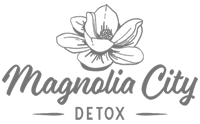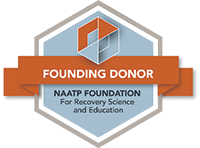DRUG INTERVENTION IN HOUSTON, TEXAS
An intervention can be an extremely powerful tool that allows those closest to the individual the opportunity to express their concern and encourage them to attend a residential treatment program. However, it’s not uncommon that interventions do not go as planned. When planning and intervention it’s important to understand how to effectively plan and execute this event. By understanding the specifics, families, and friends are better prepared and more likely able to persuade their loved ones to attend treatment for their drug addiction.
What is an Intervention?
- There is an addiction present
- The individual needs help
- The individual has your support
- There are detox and addiction resources that can aid in recovery

The intervention shouldn’t be spontaneous and should address the destructive behaviors and effects. The intervention will include the recommended steps, such as treatment options and consequences/boundaries if the plans presented aren’t accepted or followed.
Interventions should always provide motivation and incentives for the individual. The interventions come in several forms other than the classic family meeting on television.

During an alcohol or drug intervention, it’s important to remember the following:
- Help members stay on topic by having a plan
- Refrain from stating harmful things
- Avoid placing blame for using drugs or alcohol
- Stop yourself from making accusations
Overall, the intervention should focus on the positive aspects of attending a recovery program and the love that everyone has for the individual suffering from addiction. Even though it’s vital for the individual to understand how their condition affects the emotional and mental health of their loved ones, don’t blame them for all of their behaviors.
Instead, the goal is to point out the addiction that causes negative changes in behavior, and attending a rehab center will help them get sober.
Request a Confidential Callback
How Do Interventions Work?
In many cases, an intervention can come as a complete surprise for the individual. Some newer methods recommend that members of the intervention team advise the person suffering from drug abuse that they will be speaking to a counselor about substance use disorder or mental health issues. This step should occur before the intervention.

How Can You Tell if Someone Needs an Intervention?
One of the most important indicators that your loved one needs intervention is denial that they have a problem. Usually, their substance use impacts relationships, work, and health.
It’s possible that you have spoken to them about it, and they continue the same habits. For example, if your loved one continues to abuse alcohol regardless of the negative consequences that have occurred (like legal issues, financial problems, or losing their job) they have clearly lost control.
Perhaps a loved one struggling has put their life in danger many times. Not to mention that their addiction is endangering others. Or your loved one has recently overdosed from their drug use.
When there is a remarkable amount of destructive behavior, it is a clear indication of an addiction. Typically, the individual struggling with addiction is in denial or unaware of how to change their life for the better, and this is where you come in as a support unit to encourage them to attend treatment.
Regardless of the numerous opportunities you have presented a treatment center, your love might still be reluctant to seek help. The individual might even admit to needing substance abuse treatment but still refuse drug rehab.
Generally, an intervention is needed to push the individual over the edge and into addiction treatment. Your loved one might need that extra push in making the most beneficial decision for them.
As a result of the chemical dependency they desire, they cheat, steal, lie, and get high to retrieve it. Even though your loved one is aware that you know their whereabouts, they still emotionally and physically need drugs or alcohol.
Addiction can interfere with a person’s thought process. As time goes on, it becomes more challenging for the person to make wholesome decisions. During the intervention, it’s critical to point out this deception and express to your loved one that the problem is continuous.
A drug overdose isn’t the only way drug use can impact an individual’s health. It seems drugs can also cause mental illness, complications in heart health, complications in brain health, and cause irreversible liver damage. When health complications arise, the individual desperately needs drug or alcohol treatment.
Many individuals experience rock bottom with their loved one’s substance use gets out of control, and they are unable to get the individual to attend a rehab center on their own. Once this has been realized, it’s time for an intervention. It is essential to get your point across. Your loved one might finally surrender and seek outpatient treatment or residential care.

Are There Different Types of Interventions?
This intervention is generally a short, one-on-one meeting between the individual struggling with addiction and the counselor or medical professional. The intervention can occur at a school or hospital.
The intervention can occur in a doctor’s office if an exam reveals dangerous health issues. However, when individuals are worried about their loved ones, they can ask the following to perform the brief intervention:
- A professional interventionist
- Therapist or counselor
- Social worker
- Doctor
Generally, this intervention applies to models of policing. It involves police officers offering medical services, counseling services, and social resources to individuals who engage in substance abuse, have a mental health disorder, or both. By coordinating police efforts and clinical support, individuals struggling with co-occurring mental health disorders are more likely to receive help.
This intervention style not only focuses on the individual struggling with addiction but the family. All relationships surrounding the individual engaging in substance use are affected and therefore those individuals should be present during the intervention.
Since loved ones are affected by the person’s use, this intervention style assembles the entire family and any close friends into the following behavioral therapy methods:
- Individual and family counseling services
- Specific support groups
- Other forms of treatment
ARISE is a newer intervention style. It involves families, but it’s less disruptive. It still utilizes various techniques of the Johnson Model. Ultimately, the goal is to enroll the individual struggling with addiction in substance abuse treatment.
This intervention style might also involve the Johnson Model in a meeting format, or it can also be a form of community intervention. The main objective is to set attainable goals for the intervention. SMART stands for Specific, Measurable, Attainable, Relevant, and Time Specific.
SMART can be an aspect of a follow-up in a family-centered intervention. It can be a part of a program evaluation for community interventions such as drug and alcohol education programs, or during treatment services at drug rehabs.
What Are the Steps Involved in a Successful Intervention in Houston, TX?
This step might involve contacting a professional social worker, doctor, or interventionist. It can also involve including other members of the family and friends. Support for the overall intervention process is crucial. It’s also vital not to approach the intervention process head-on alone.
Forming the intervention team will include the core group of organizers, so it may or may not be the professionally hired interventionist. It usually includes:
- Close family members
- Coworkers
- Friends
This step includes scheduling the specific time of day, guest list, and location. It also includes outlining what everyone will say and how the process will look. Overall, this is the ultimate guide to the event.
During this step, learn more about substance abuse and addiction recovery. Gather information about rehab programs and detox, specifically those that suit the needs and personality of the loved one struggling with substance addiction.
Everyone at the intervention should have something to say to the individual struggling with addiction. There should be personal statements articulating how the person’s use of drugs has affected them personally. These statements should be emotionally honest and mainly focus on love. There is no room or place for any personal attacks in these statements.
Individuals attending the intervention should be willing to provide support, in some capacity, to their loved ones struggling with addiction. While they attend detox, the rehab facility, or during long-term recovery, it is needed. For example, this can look like offering rides to the treatment centers or even offering to attend support groups.
If the individual struggling refuses treatment, the bonds between loved ones must change. Everyone at the intervention should dedicate themselves to not enabling behaviors. It’s vital to make it clear that there will be consequences if they refuse to attend inpatient or outpatient rehab.
Emotions will run rampant during the intervention. So, to ensure no one is blaming the individual or falling into a rabbit hole of self-pity, rehearse the entire intervention with everyone present at least once. Therefore, everyone will be more prepared and understand the flow of the intervention.
With the most well-planned intervention and efforts to help, the individual can still not accept the offer of treatment for several reasons. This step is one of the hardest, but it does happen more often than not. Follow through with the outlined consequences if it occurs.
Whether the individual accepts the help or not, it’s vital to uphold the statements made during the intervention. Otherwise, the individual can experience stress that leads to the delay of the treatment process, lead to relapse, or exacerbate substance use issues.

Are There Different Types of Interventions?
After the intervention, it is time for your loved one to attend a drug rehab center such as Magnolia City Recovery. We offer comprehensive detox and inpatient rehab to help individuals find long-term recovery from alcohol and drug abuse. Our approach starts with developing an individualized treatment plan utilizing a variety of recovery services. Our plans focus on relapse prevention, developing life skills, and building habits for a healthy life.
To learn more about addiction treatment centers in Houston TX, contact us! We can help anyone suffering from substance use disorder begin their recovery journey today!






